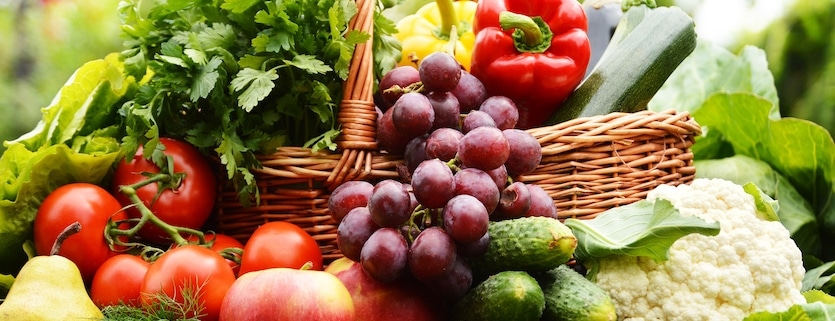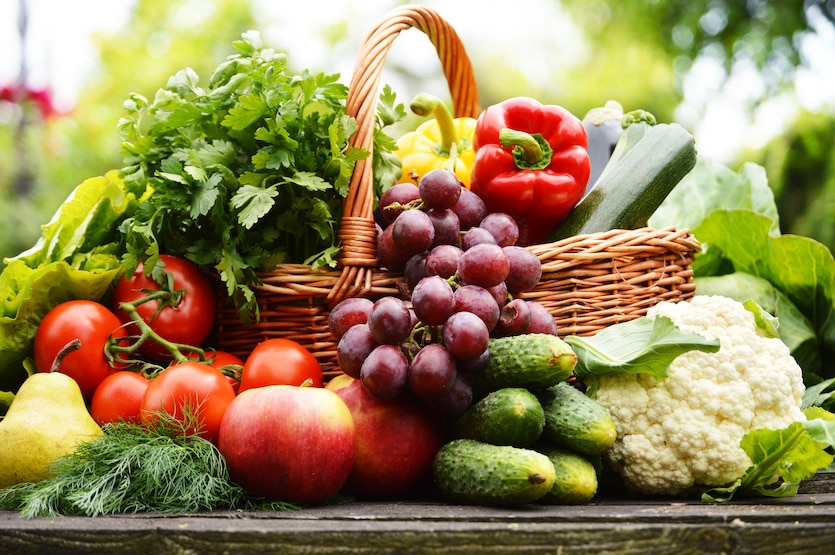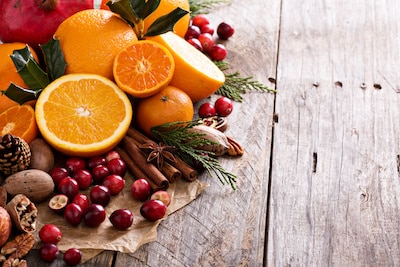Optimize Your Diet: Adapting Your Eating with the Seasons
In today’s world, you can find just about any food in stores year-round. And while there are certainly benefits to the widespread distribution of produce—like being able to make avocado toast on any given Sunday of the year—these food distribution networks have also had other unintended consequences, some good, some bad.
One such consequence is the disappearance of seasonal eating. Throughout the world, many people have access to the same foods throughout the year. This, in turn, means that many people keep their diet consistent regardless of the season. While there’s not necessarily anything wrong with this, it does raise another question: should we be adjusting our diets based on the season?
The short answer is yes—and there are a variety of reasons why. But let’s get into the long answer.
Seasonal Nutrition and Sunlight: Why Your Diet Needs More Vitamin D in the Winter
Whether you’re conscious of it or not, your body responds to and interacts with its environment in a number of ways. One example of this is the way your body converts sunlight into vitamin D. The process starts with UVB radiation, which the sun emits constantly. When this UVB radiation hits the skin it is absorbed by a compound known as 7-dehydrocholesterol. UVB converts this compound into previtamin D3, which eventually becomes vitamin D3—a vitamin that can help support healthy bone development, and energy levels.
So what does this process have to do with the seasons? It’s simple: in the winter months, most people get less sun. And this means they are also getting less vitamin D.
Vitamin D isn’t naturally found in high concentrations in most foods, so picking up the slack during winter months requires a little bit of planning. Here’s the good news: many foods are fortified with vitamin D, so you have options. If you’re trying to add a little vitamin D to your diet to make up for lost sunlight, try eating a breakfast of milk and cereal—both of which are often fortified with vitamin D. Just check the label to make sure this is the case!
If you’re a fan of seafood, you’re also in luck. Vitamin D is found naturally in salmon, tuna, swordfish, and sardines.
Additionally, vitamin D supplements are always an option—just include them with your daily multivitamins.
Seasonal Eating and Nutrition
As outlined above, adjusting your diet depending on the season can have a variety of health benefits. But many people adjust their diet seasonally for a different reason: they want to practice seasonal eating. This is exactly what it sounds like—that is, eating fruits and vegetables that are “in season.”
For many, seasonal eating is about the environment. Food that has to travel halfway around the world to get to you has a much greater carbon footprint than food that is grown just down the street. But it turns out there can be health benefits to seasonal eating too!
By eating fruits, vegetables, and other produce that is in season and locally grown, you naturally vary your diet. After all, not too many foods are in season year-round. A varied diet can help you get a good balance of the vitamins, minerals, and other nutrients your body needs to thrive. Additionally, some studies suggest that locally grown produce is more nutrient-rich than its imported counterparts. This is because the longer some produce is stored, the more some antioxidants can break down. This isn’t to say imported produce is inherently bad, just some food for thought.
Holiday Snacking: Striking the Right Balance
As the weather takes a colder turn, your diet may change for another reason: the holidays. Between Halloween, Thanksgiving, and the winter holidays, there’s plenty of opportunity for snacking. The rhetoric surrounding holiday eating often paints this as a bad thing, but it all depends on how you approach it.
First things first, there’s nothing wrong with snacking. And there’s nothing wrong with indulging in your favorite treats around the holidays. What’s important is that you are mindful of your own nutritional goals.
If you feel like you often replace nutrient-rich foods with salty and sweet holiday snacks, try setting out some veggies with the other snacks. This is a simple option that can help you maintain variety in your diet and provide your body with much needed vitamins and minerals.
As you’re eating, remember to slow down. Snack foods have the tendency to go down faster than our bodies can register them, meaning you won’t actually realize you’re full until several handfuls of popcorn too late (or whatever snack you happen to be eating). By slowing down, you can counteract this tendency and allow yourself to really savor and enjoy the food.
Aligning Seasonal Nutrition with Your Nutritional Goals
There’s no “right” way to approach seasonal eating and seasonal nutrition—it all depends on what your nutritional goals are. If you’re trying to eat a varied diet that includes many fresh fruits and vegetables, you may want to try the wide variety of locally-grown produce available each season in your area.












